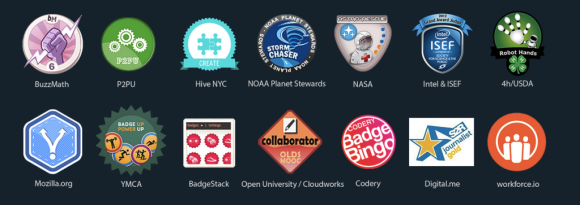Now that I’m freelance, all my writing and trending energy has had to go into client work, so i’ve had less time for blog posts.
Here’s an extract from a piece i did for the great Protein Journal, out now…
The path from education to employment used to be straightforward, but with fewer permanent jobs available and a glut of graduates, youth unemployment is a now major issue. 24.4% of under-25s in the Eurozone were reported to be unemployed at the end of 2013, while in the UK, there are 3.74 times more jobless under-25s than the national average. At the same time, higher education costs are rocketing – US education costs have gone up 400% since 1980 – leading many to find new paths between learning and employment.
Gensler senior associate Maria Nesdale comments, “Students are now clients and they are voting with their feet – they’re demanding more out of their education, and will go wherever offers the best value.” According to a poll by Time magazine and the Carnegie Corporation, 80% of US adults believe that the education received at most colleges is not worth it; 41% of college presidents and senior administrators agreed.
One of the key elements of the new value equation is, “will this course land me a job?”, so brand-savvy students are looking for opportunities to bridge the gap between business and education in innovative ways. Nesdale says, “The relationship between learning and work is getting closer every year – universities are starting to adopt corporate methods, while big companies are getting more involved with learning”.
Femi Bola MBE, director of employability and student enterprise at the University of East London, is collaborating with major London businesses to give students insight into the real necessities of the modern workplace. “The skills needed by employers are rarely fostered in traditional education: they’re looking for business acumen, great written and spoken communication, and an entrepreneurial attitude”, she says.
Entrepreneurial spirit is not lacking in the current crop of university students and graduates. A 2013 survey by the Kauffman foundation found that 54% of US millennials want to start their own business or have already started one, while BMO data suggests that 46% of students want to start their own business.
Chicago’s Starter School and the Boston-based Startup Institute are reinventing traditional business schools for entrepreneurs by offering courses that focus less on management theory and more on knowledge that’s directly applicable to current market needs. Starter School’s 9-month course on the coding, design, and business skills to build web apps is not cheap at $33,000, but still beats the six-figure fees for leading MBA courses. Both schools emphasise their connection to industry, with Startup Institute students working with real startups, while Starter School participants spend 3 days a week working on projects for businesses such as Twitter’s Bluefin Labs.
It’s not just about breaking out on your own, though: many students and graduates are looking for innovative courses that augment traditional qualifications and boost their employment options. Hyper Island and General Assembly are very modern learning institutions, offering courses in highly marketable skills including app development, data analysis, digital strategy and user experience design. The idea seems to be working: General Assembly reports that 97% of the graduates of its 12-week immersive programmes find paid work within 90 days of graduating, and it now has campuses in innovation capitals including Sydney, London, New York, San Francisco and Berlin.
These kinds of education incubators – to borrow a term from the startup world – are just part of education’s new guard. As Megan Cole, Mozilla’s Marketing Strategy Lead, points out, “Today, modern learning institutions are empowering learning to go beyond just the traditional classroom and thrive in the online environment. They rely on technology as a way to help extend and transform learning all across the world”. MOOCs – or Massive Open Online Courses – have been hailed as the future of education, with venerable institutions from Harvard and MIT to Princeton and King’s College London throwing their hats into the ring. Leading MOOCs include Udacity, with over 750,00 registered users worldwide; EdX, which offers over a hundred short online courses to its 1.8m students; and Coursera, serving 4m learners.
While some of the initial excitement around MOOCs has died down, new elements are being introduced to give them greater relevance to business, from new qualification standards such as Mozilla’s Open Badges, to brand-sponsored courses. Udacity is working with six major companies, including Google and Microsoft, to create classes in high-value skills such as 3D graphics and Android app development, while branding giant Wolff Olins has partnered with FutureLearn to develop a course on The Secret Power of Brands.
Cole comments, “Learning today looks very different than previously imagined. Learning is not just ‘seat time’ within schools, but extends across multiple contexts, experiences and interactions. It is no longer just an isolated or individual concept, but is inclusive, social, informal, participatory, creative and lifelong.”


